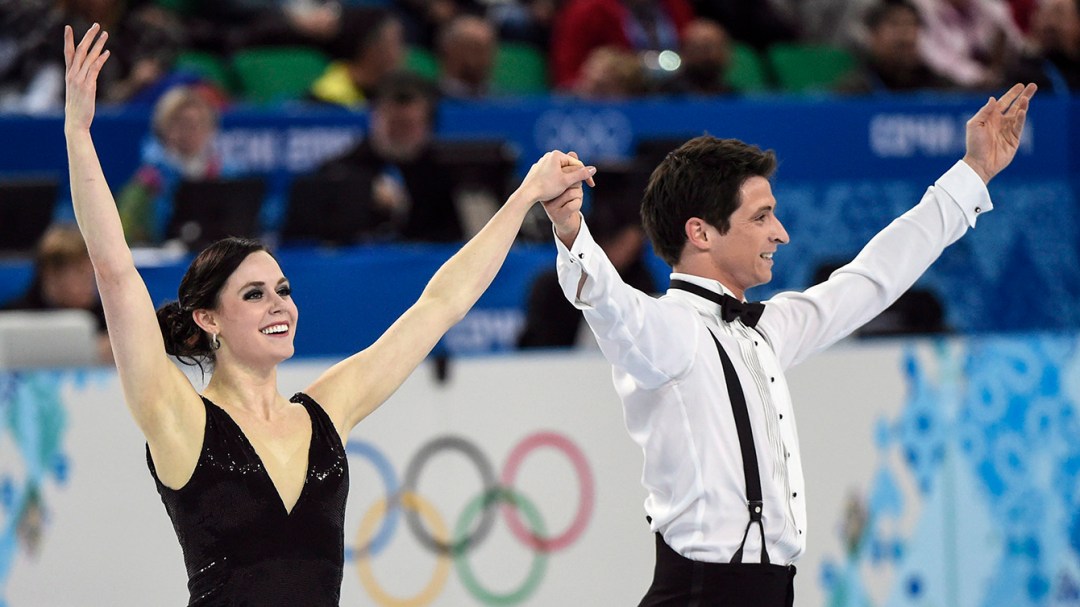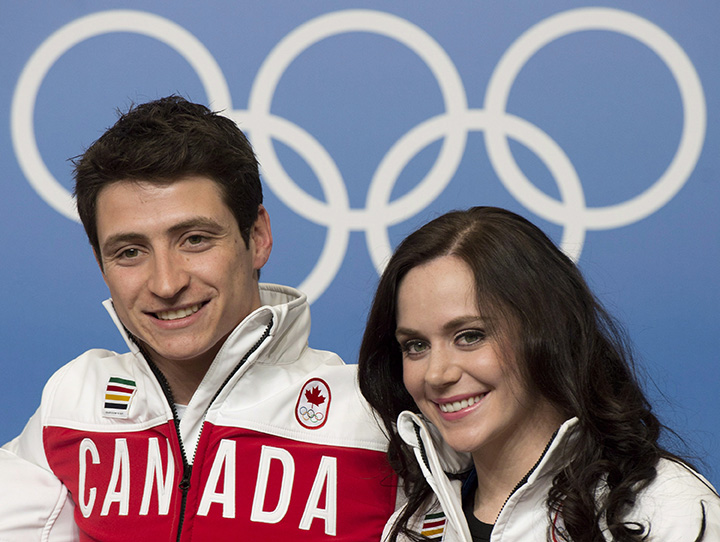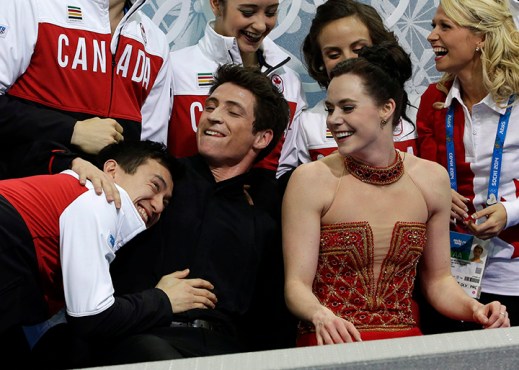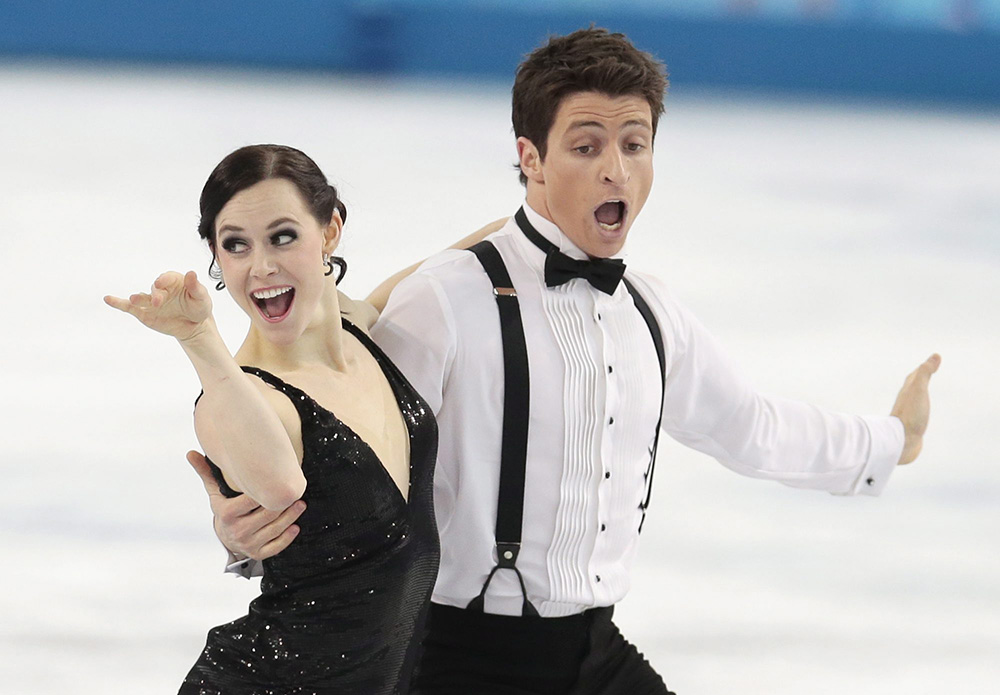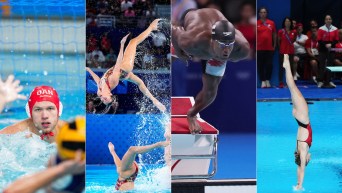Tessa Virtue and Scott Moir return to Olympic Games as team leaders, and to defend gold
When Tessa Virtue and Scott Moir step on the ice today in Sochi, they are to Canadians graceful team leaders and to the Olympic Games, ice dance defending champions.
Heading into their second Games, it could be suggested they’ll have a much different experience from Vancouver 2010 where they arrived as rookies and left as national heroes.
Yet for Virtue, this notion doesn’t quite align, “It’s interesting because we have some of our younger teammates coming to us and looking for advice, and asking what to expect at an Olympic Games. Off course we want to offer as much help and insight as we possibly can but this time around we also feel like rookies. I mean we don’t know what to expect in Sochi, it’ll be a different ball game than what we had in Vancouver. But we’re certainly excited to be the leaders of this team and we’ll be there to support our teammates no matter what,” she says thoughtfully.
Along with Patrick Chan, they are the only others with Olympic experience, of the 17-member figure skating team. In a sport that trends younger, Virtue is 24 and Moir 26, which means they do have international experience and the complimentary maturity as assets.
“I think the three of us Tessa and I and Patrick, we take our role pretty seriously in that regard. We do have a little more experience than some of our team members, at the same time you don’t get to this level without knowing what to do. We’re just going to be there to support them. We believe in our teammates tenfold, and we can’t wait to see the result that that brings,” says Moir.
It’s true. Even without Olympic competition, the deep Canadian team has spent a great deal of time at the Grand Prix and World Championship level. And if you want to throw around sport cliches, it’s probably easier for Virtue and Moir to lead by example anyway.
Which is what they’re doing. They often refer to their season plan, which after Nationals in early January was more or less on track, “If we were to break down our physical preparation we’re pretty close to right on to what we planned at the beginning of the year. For an athlete that’s impressive. At the beginning of the year we vowed consistency to each other and our training plan and we’ve done that very well,” commented Moir.
The ultimate end point of the plan is a gold medal, something that has never been a secret. Not that it should be, but some defending Olympic champions will play this down while others will amplify their intentions. Virtue and Moir have done neither. They are casual but aware. Scott seems to approach 2014 gold in the context of their athletic plan. Alternatively, Tessa clothes the feat with honesty and national pride, “It’s overwhelming to even think about being two-time Olympic champions, of course that’s our goal and something that we’ve been training and working really hard towards. Just having the opportunity to represent Canada again at an Olympic Games is such an honour and a privilege we’re not taking lightly,” she says.
A second gold medal will require a flawless performance. Detroit training partners and Americans Meryl Davis and Charlie White have bettered them in two major events over the past year. The margin was only a handful of points at 2013 World Championships in March and exactly 1.35 at December’s Grand Prix Final. In this week’s team event, Meryl and Charlie had higher scores in both dances as well.
Tessa and Scott are routinely referenced together, and naturally so, they are an ice dance couple. But like any good relationship, individual perspectives on important points can sometimes differ, or be expressly similar. All that counts is during important moments, a kind of harmony is found. They’ve done it once as rookies. Twice as leaders would be nice.

